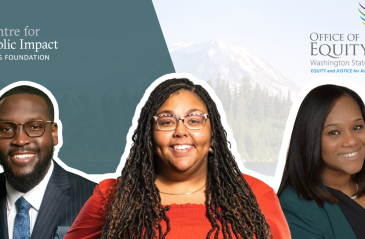
Five things we recently learned about difficult conversations

Governments need diversity of thought in their advisers and decision-makers
Share articleThe most important factor to ensure that governments make good decisions is effective leadership
Share articleLeaders need to be open to dissenting perspectives and be able to assimilate different ideas
Share articleWe put our vision for government into practice through learning partner projects that align with our values and help reimagine government so that it works for everyone.
History is littered with examples of governments making bad decisions with disastrous consequences. Even when the warning signs are written all over the walls, groups of smart, experienced individuals continue to make poor, ill-informed decisions.
A classic example is the decision by John F. Kennedy and his close advisors to invade Cuba at the Bay of Pigs in 1961 without rigorous analysis or questioning of the plan. Examples of smart groups making bad decisions are also found within large, multinational organisations like the International Monetary Fund, as well as high performing companies and corporate boards.
What can governments do to improve their decision-making ability and prevent costly errors, especially as they face increasingly complex and challenging problems? The solution is two-fold: a government that actively seeks out diversity of thought; and leadership that understands and values dissenting perspectives.
Governments need cognitive diversity (or diversity of thought) in their advisers and decision-makers. Cognitive diversity can come from a variety of sources, including demographic factors, such as a person's gender, ethnicity or age, or a person's ability to contribute specific expertise, industry knowledge or experience. Cognitive diversity can also come from differences in social backgrounds and values. These factors shape the way that people see and understand situations, as well as the mental frameworks that they use to make decisions and solve problems. Diversity allows individuals to make different contributions to the problem or situation at hand.
Research on the impact of diversity on deliberation and decision-making shows that the presence of diverse perspectives can enhance government decision-making in a several ways.
Firstly, governments have access to a wider pool of knowledge, experience and perspectives, allowing them to consider more ideas, view problems from different angles, and enhance their problem-solving capacity. Diversity reduces vulnerability to blind spots and cognitive biases, as people with different experiences and backgrounds are less likely to make the same errors as a collective.
Secondly, groups with greater diversity are more likely to voice challenge and dissent, as people expect differences in views and knowledge to be present. Research shows that when a group is diverse, all members voice dissent more persistently and confidently, contributing to richer discussions.
Finally, diversity can improve deliberation and analysis. Members in diverse groups are more likely to expect others to think differently and challenge their ideas, leading them to examine information more rigorously, present a thorough case for their opinion, and abandon positions unsupported by the evidence.
These factors can help governments avoid groupthink and reduce the echo-chamber effect that limits a government's ability to consider a situation or problem rationally and critically.
However, diversity is a double-edged sword—it can also lead to greater tension and conflict, making it more difficult to reach a single, coherent decision. Governments often need to make decisions quickly and, if not properly managed, diversity can get in the way of responsive and timely decisions.
While diversity of thought brings many advantages, diversity alone is not enough. Governments with diverse, well-intentioned and intelligent individuals can still collectively make bad decisions. Having the right decision-making process is crucial, and good process always begins with effective leadership.
Governments need leaders who believe in the value of diverse perspectives and promote an inclusive but challenging dynamic within their group of advisers and decision-makers. They should guide but not dominate discussions to get a balance of views, such as teasing out contributions from different people, tuning down louder voices, and knowing how to use different tools and processes (e.g. appointing a devil's advocate, obtaining external advice) to consider issues and positions thoroughly.
In addition, effective leaders strike a balance between encouraging challenge and full debate and bringing issues to a close with proper, agreed outcomes. This requires judgment about which issues take priority, determining when decision-making needs to speed up or slow down, and the ability to summarise and synthesise the consensus opinion.
Having been stung by the decision-making failures of the Bay of Pigs debacle, John F. Kennedy went on to display effective leadership during the Cuban Missile Crisis. The President wanted to make sure that deliberations about how the United States should confront the Soviet Union regarding missiles in Cuba were rigorous, unfettered and objective. He would skip meetings to maintain the quality of discussions, knowing that his presence might change the conversation (“frequently even strong men make recommendations on the basis of what they believe the President wishes to hear”: Thirteen Days: A Memoir of the Cuban Missile Crisis). He also asked advisers who advocated different options to develop their arguments in committees before meeting together.
As governments around the world confront more challenging and complex problems, policy leaders and decision-makers need to reflect on how effective they are at making good decisions.
Bringing greater diversity of thought is a crucial first step, but diversity alone will not drive better decision-making. To truly harness diversity as the grit in the oyster, governments need leaders who are open to (and, in fact, encourage) challenge and dissenting perspectives, and who can listen to, balance and assimilate different ideas.











